Use of CAR-Transduced Natural Killer Cells in CD19-Positive Lymphoid Tumors
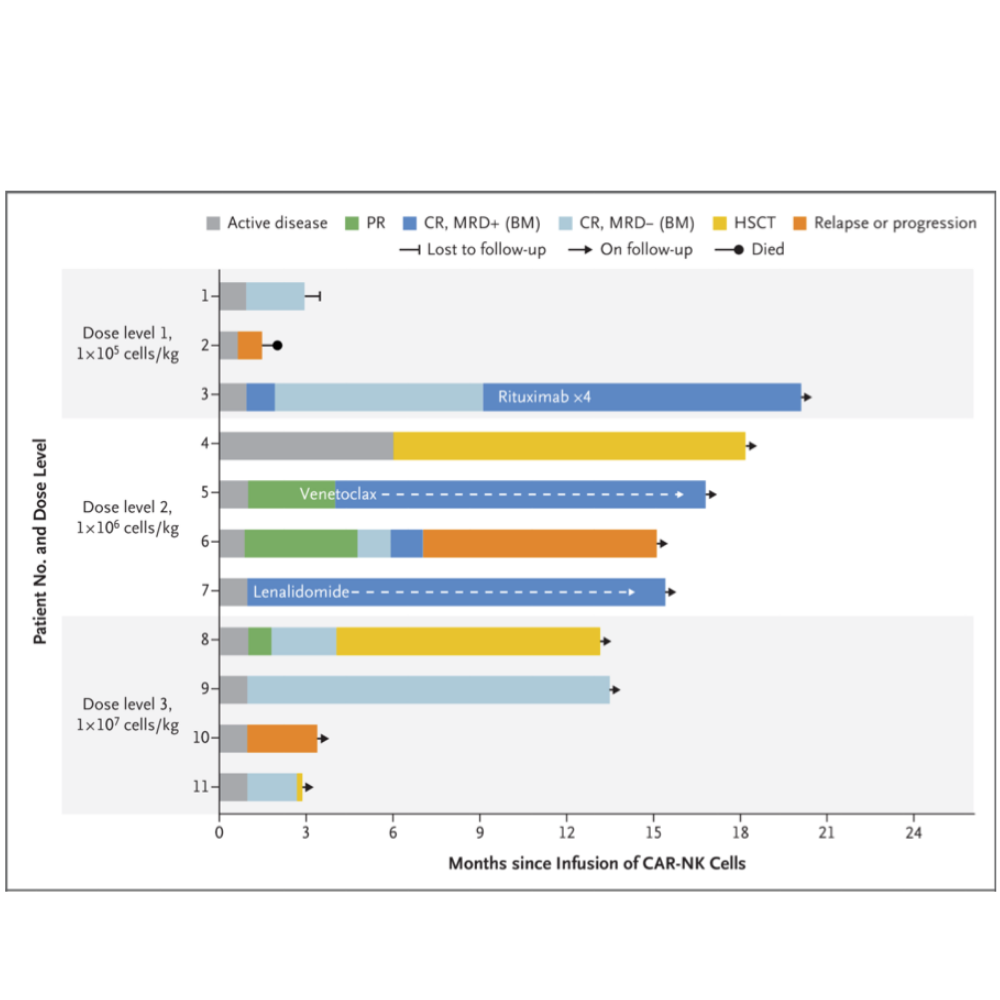
Unlock the potential of CAR-transduced natural killer (NK) cells in treating CD19-positive lymphoid tumors with our latest study. Explore the infusion of CAR-NK cells derived from cord blood, showing promising responses in patients with relapsed non-Hodgkin’s lymphoma or chronic lymphocytic leukemia. Discover how HLA-mismatched anti-CD19 CAR-NK cells, manufactured from cord blood, triggered positive treatment responses without significant toxic effects. Delve into the methodology behind the manufacture of CAR-NK cells and the treatment process involving lymphodepleting chemotherapy followed by CAR-NK cell infusion. Uncover the remarkable safety profile of CAR-NK cell therapy, with no instances of cytokine release syndrome, neurotoxicity, or graft-versus-host disease observed. Dive into the results, showcasing objective responses in 73% of patients, including complete responses in 7 patients with CLL or lymphoma. Witness the potential of CAR-NK cells in inducing responses in high-risk CD19-positive cancers with minimal adverse events.
Next-generation cell therapies: the emerging role of CAR-NK cells
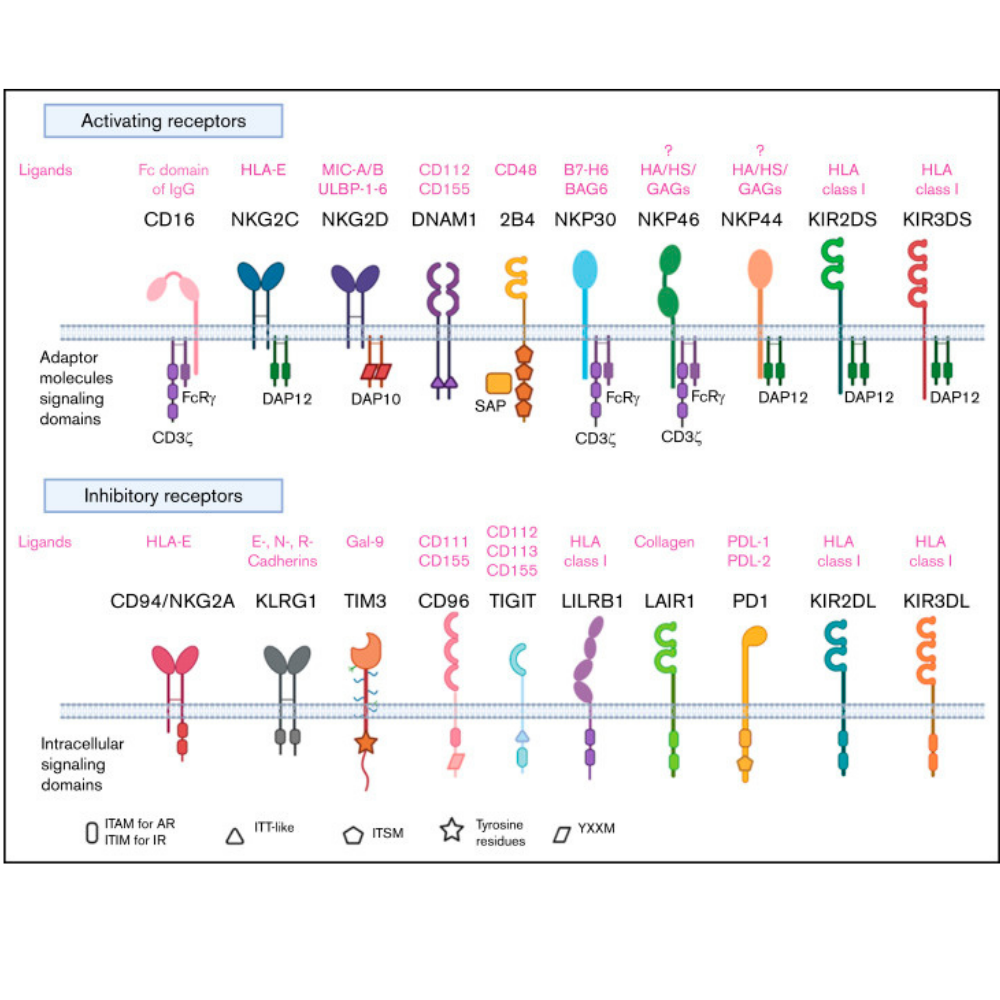
Next-Generation Cell Therapies: The Emerging Role of CAR-NK Cells explores the transformative potential of chimeric antigen receptor natural killer (CAR-NK) cells in cell therapy, particularly for treating recurrent or refractory B-cell malignancies. While CAR-T cells have revolutionized the field, they come with significant practical, logistical, and toxicity challenges in both autologous and allogeneic settings. This blog delves into how CAR-NK cells, with their unique biological properties and established safety profile in allogeneic environments, are emerging as a promising alternative, potentially overcoming the limitations faced by CAR-T cell therapies.
CAR NK therapy attacks cancer quickly
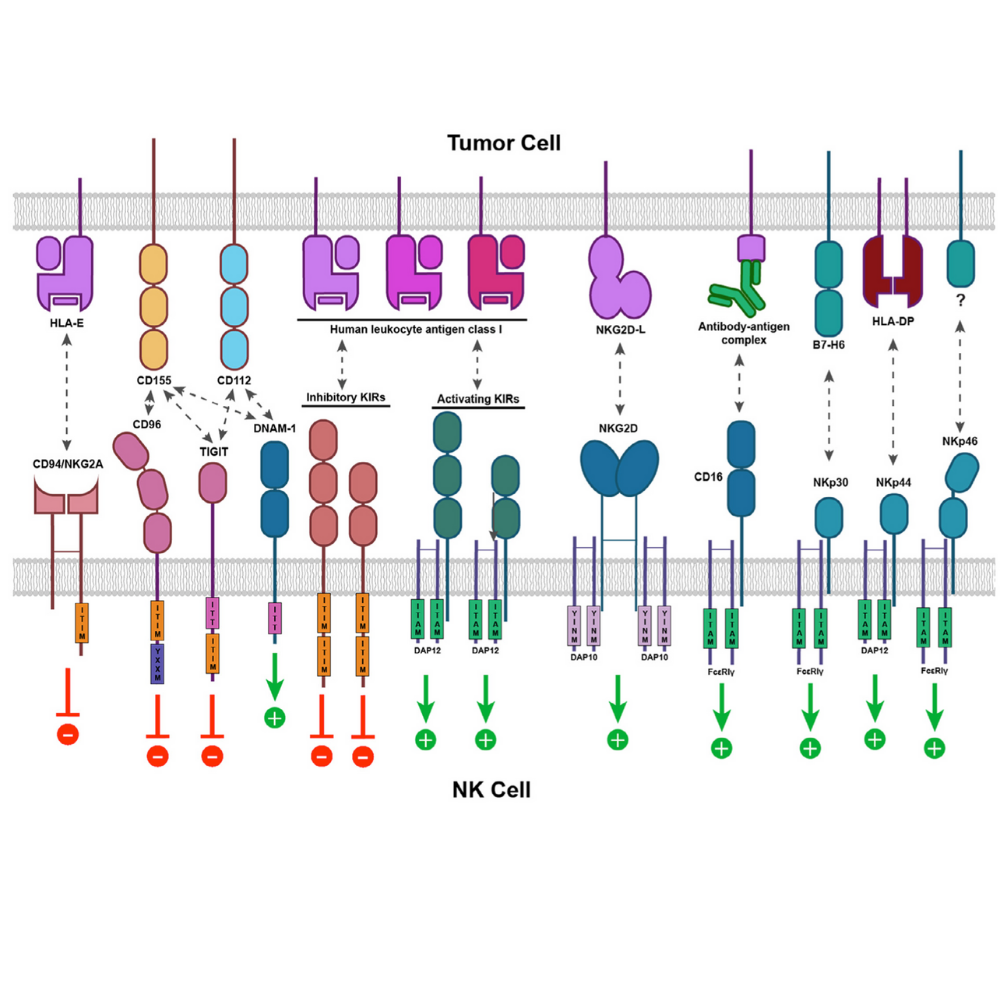
Natural killer (NK) cells, a crucial part of our immune system, patrol the body for abnormal cells like cancer and destroy them. However, cancer cells can evade detection, making NK cells less effective. CAR NK therapy enhances NK cells’ cancer-fighting ability by using NK cells from donated umbilical cord blood and adding a chimeric antigen receptor (CAR) molecule. This innovation allows NK cells to recognize and attack previously “invisible” cancer cells. The therapy is available off-the-shelf and ready for immediate use, demonstrating long-term effectiveness and minimal side effects, though patients may experience manageable side effects from conditioning chemotherapy.
CAR-NK cells: A promising cellular immunotherapy for cancer
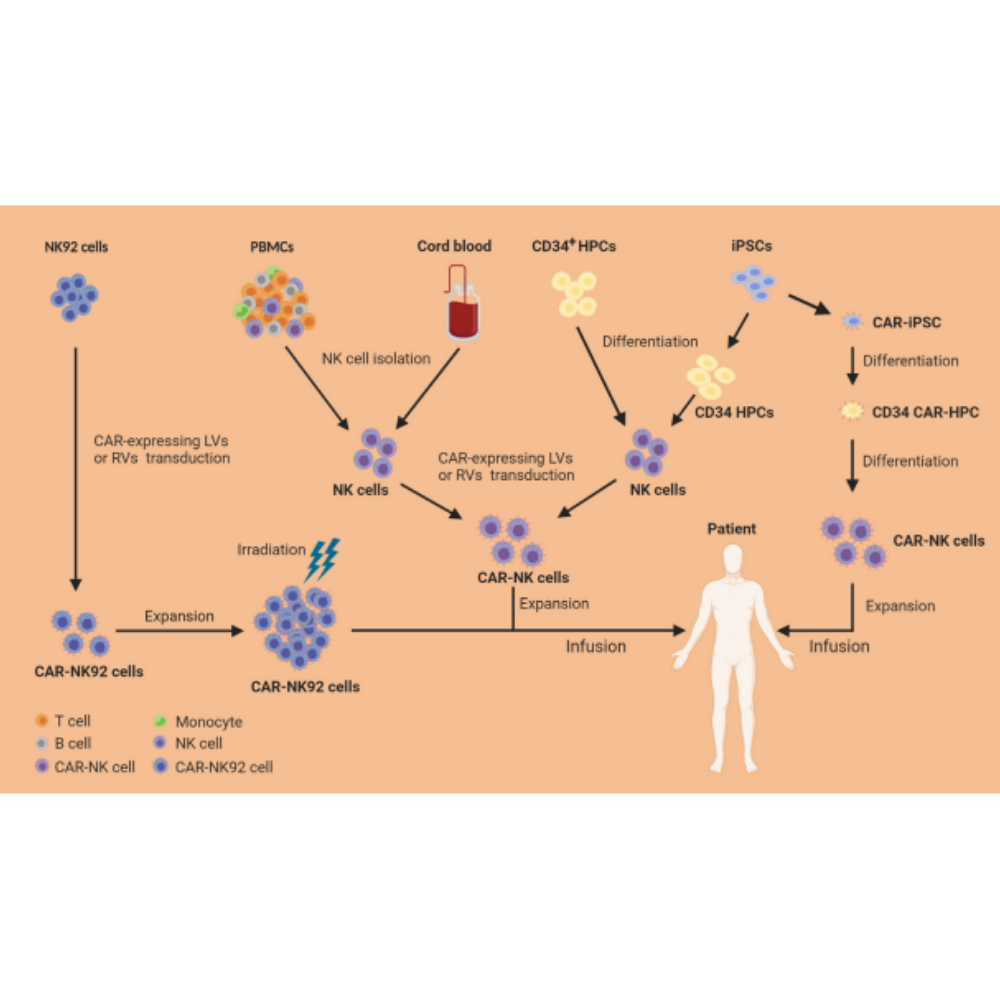
Natural Killer (NK) cells and CD8+ cytotoxic T cells are vital immune cells capable of destroying target cells through similar cytotoxic mechanisms. The success of chimeric antigen receptor (CAR)-engineered T (CAR-T) cells in treating hematological malignancies has spurred interest in developing CAR-engineered NK (CAR-NK) cells for cancer therapy. CAR-NK cells offer significant advantages, including better safety profiles with minimal cytokine release syndrome and neurotoxicity, multiple mechanisms for activating cytotoxic activity, and high feasibility for ‘off-the-shelf’ manufacturing. Recent advances in genetic engineering have enabled the creation of CAR-NK cells that target diverse antigens, enhance proliferation and persistence, and effectively infiltrate solid tumors. With promising results in preclinical studies and clinical trials, CAR-NK cell therapy is poised to become a transformative option for cancer patients with limited treatment choices, potentially improving overall survival rates.
Chimeric antigen receptor natural killer (CAR-NK) cell design and engineering for cancer therapy
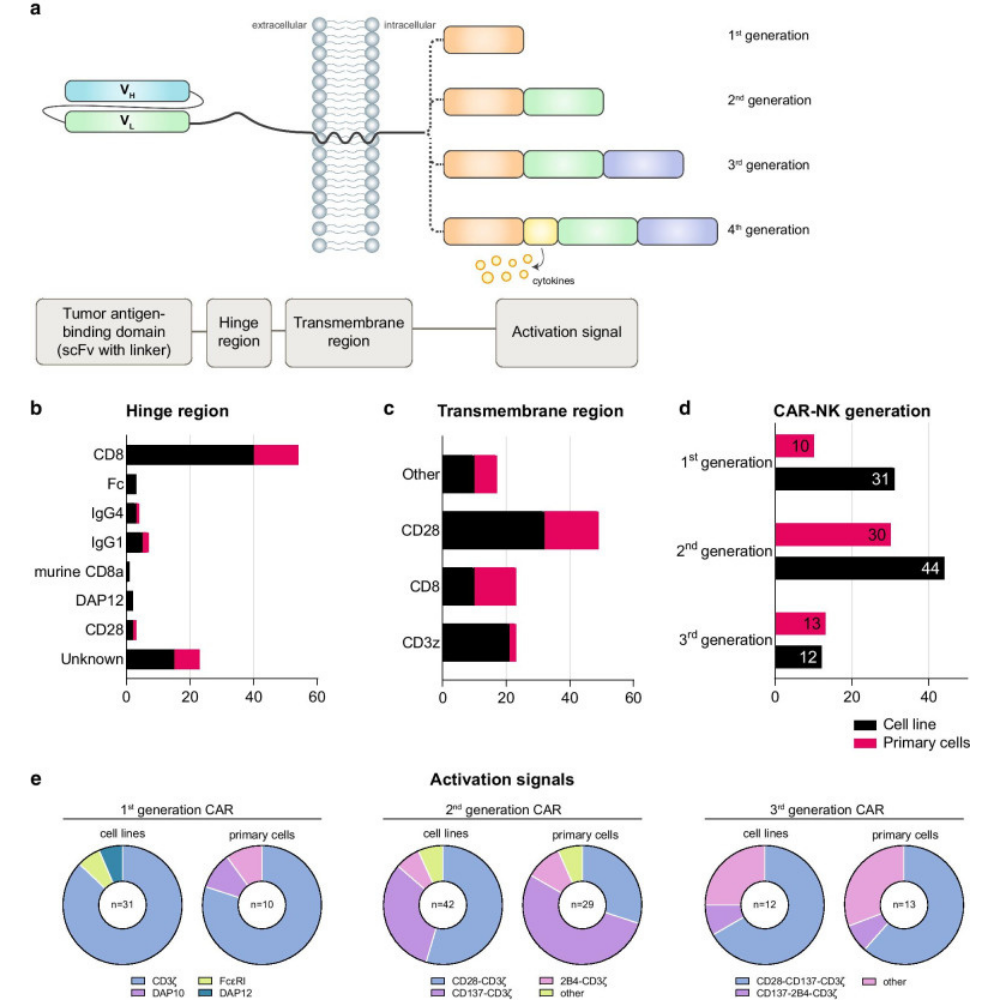
Chimeric antigen receptor natural killer (CAR-NK) cell design and engineering for cancer therapy Summary Natural killer (NK) cells are specialized immune cells that can be genetically manipulated to produce capable effector cells for adoptive cellular therapy of cancer patients due to their rapid detection and lysis of malignant cells. However, biological and technical barriers to […]
Current status and perspective of CAR-T and CAR-NK cell therapy trials in Germany
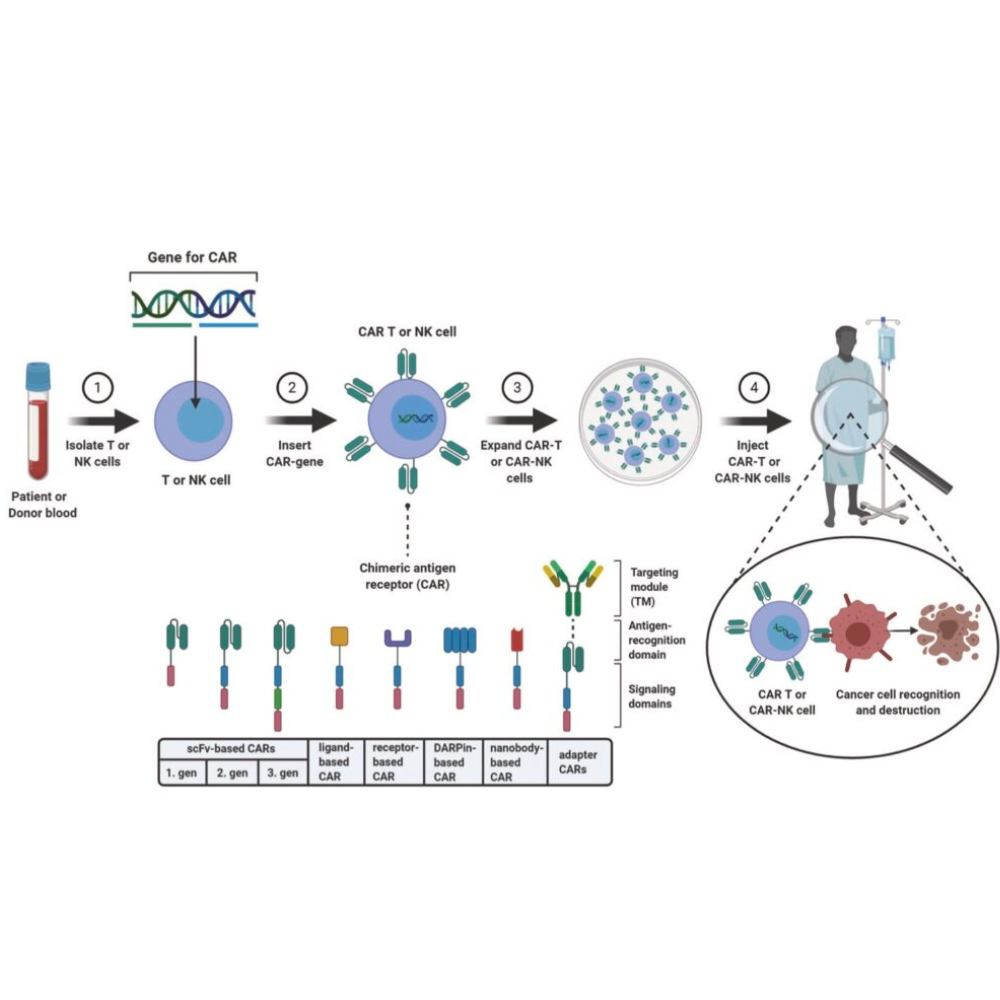
Explore the advancements and challenges of CAR-T and CAR-NK cell therapy trials in Germany. Chimeric Antigen Receptor (CAR) therapies are emerging as revolutionary immunotherapies for hematological diseases. This blog delves into the potential of CAR-T cell therapies, highlighting their impact and the critical need for innovative therapies. It also discusses the growing interest in CAR-NK cell therapies, which aim to overcome limitations associated with CAR-T, including therapy-induced side effects, offering new hope for patients. Stay informed about the latest developments and future perspectives of these cutting-edge therapies in Germany.
Synergistic Drug Combinations Effective against Patient-Derived and Drug-Resistant Melanoma Cell Lines
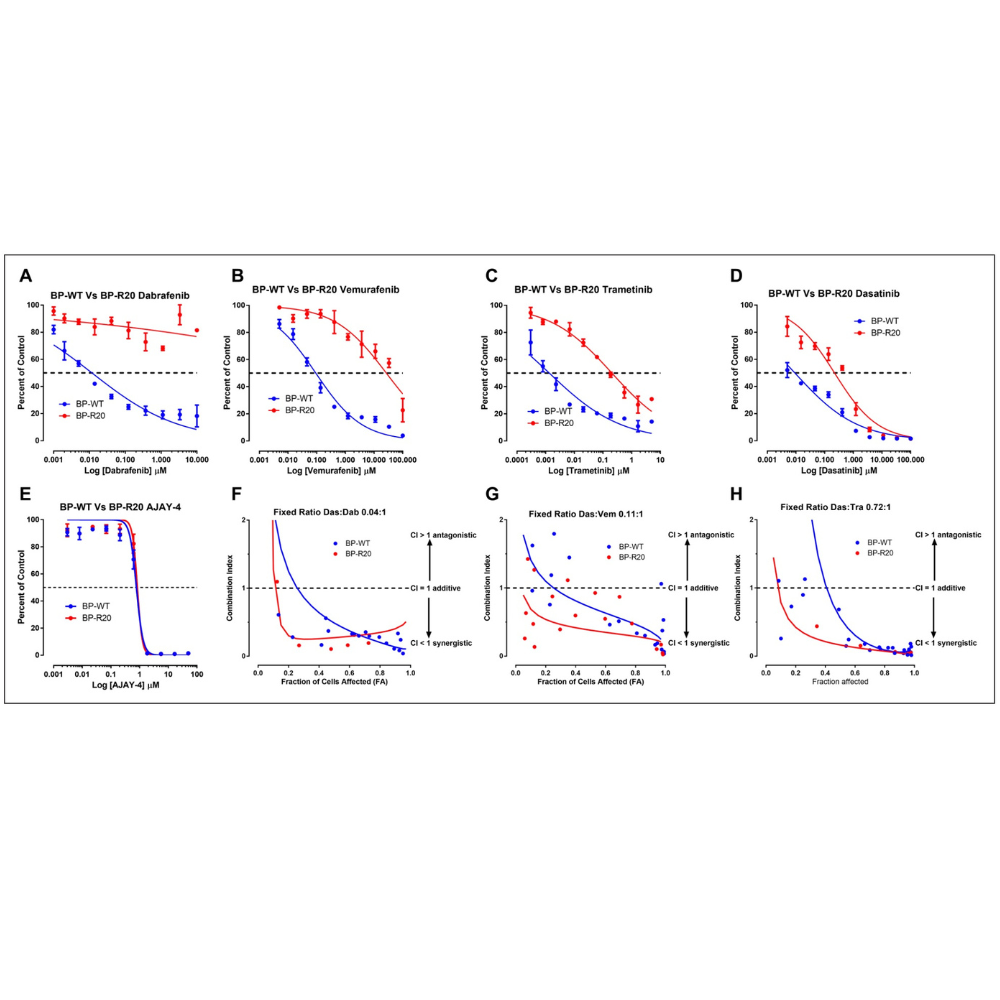
Discover groundbreaking advancements in melanoma therapy with our latest research on synergistic drug combinations. This study delves into the development and validation of growth inhibition assays for six patient-derived melanoma cell lines (PDMCLs), including both BRAF wild type and V600E-BRAF mutations. Utilizing high-throughput screening, we examined 45 pairwise drug combinations, revealing promising results with dasatinib paired with B-Raf and MEK inhibitors. Our findings highlight enhanced growth inhibition and cytotoxicity, independent of BRAF status, suggesting potential new therapeutic strategies to combat melanoma and drug resistance. Dive into the full study for insights into innovative melanoma therapies and future clinical applications.
Viju
Viju (UK) Appendiceal cancer This statement was given by a family member of the patient: My wife successfully had her samples collected to be dispatched. We met with the nurses, Mikaela and a colleague, they were very helpful, professional and caring. Everything went smoothly and my wife was very content. We thank the whole team […]
Daniela
Daniela (UK) Urothelial carcinoma This statement was given by a family member of the patient: We thank you for all of your support during these trying times. We are impressed and reassured of your method and I will personally spread the word. So many lives could be saved! *In order to respect the privacy of […]

